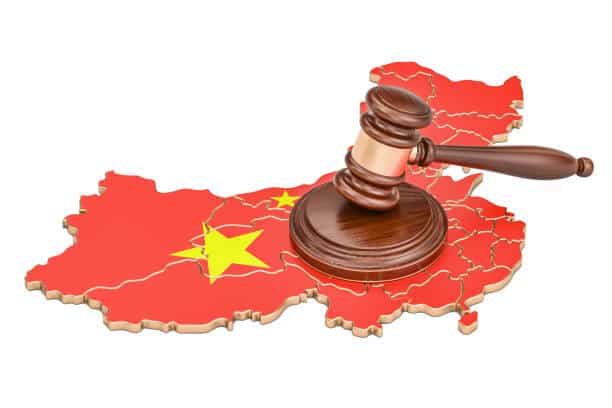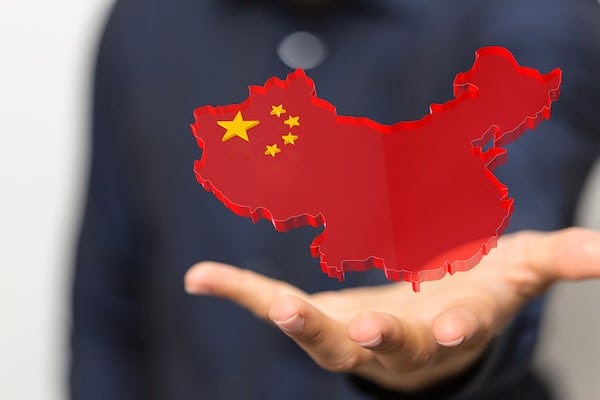China is becoming an increasingly attractive option for Western companies to expand to, given many of its distinct advantages. Although Europe and the United States have suffered decline in their economies, China’s own economy has continued to grow, most notably in double-digit rates over the last few years.
[powerkit_toc title=”Table of Contents” depth=”2″ min_count=”3″ min_characters=”500″]
This country is expected to soon be one of the largest global economies in the world. With a massive population, there is a huge audience to appeal to when marketing your product offerings or services.
China represents many ample opportunities for Western companies. However, China is a large and complex market. The prospect of expanding to this country may feel very daunting to many companies, especially smaller startups with limited resources.
Here, we examine the key challenges of breaking into the Chinese market, as well as some information on the opportunities this expansion may have for your business. By understanding how to enter this complex market and implementing practical strategies, your company, too, can be part of the move to China.
Reasons to Expand to China
China offers ample reasons to expand to its borders. Demographics are rapidly changing as more people have rising incomes.
Additionally, there is greater increased consumer spending. The business environment has become more open and regulatory regimes have been lessened.
At the same time, many western companies are experiencing challenges in their home countries with declining sales or greater regulations. These reasons have motivated many companies to relocate or expand to China as part of their global expansion plan.
Key Challenges to Enter the Chinese Market

Expanding to China poses certain challenges to companies. Some of the key challenges are discussed below.
Identification of the Market
Many businesses make the mistake of not properly identifying the market. China is not a homogenous market.
There are significant regional variables that affect the market. Although the country is unified geopolitically, there are diverse social and economic structures throughout the country. There have been very different rates of economic growth throughout the country. Key metrics may be different, including:
- Per capita GDP
- Population level
- Average income levels
- Average education levels
- Literacy rates
- Consumer spending habits
- Lifestyles
- Values
In this manner, China represents many sub-markets that companies must intimately understand to have a chance at successfully expanding into the country and region.
Each region has different economic, demographic and cultural characteristics. Understanding the unique opportunities and challenges in each region is critical to being successful in that market.
Companies that are entering the Chinese market for the first time as well as larger Western companies that have an established presence in China similarly struggle with not having a sufficient understanding of the local market where they are hoping to drive sales.
China encompasses a population of more than 1.3 billion people. It is also an expansive nation with a land mass much larger than that of the United States and many other industrialized countries. These distinctions make China different than other smaller Asian countries, like Japan or South Korea.
Selection of a Location
Companies also struggle with selecting a location to establish their business.
The composition and nature of different markets vary, so it is important that companies strategically consider which geographical location will offer the most advantages to their business and will allow them to target the broadest audience possible.
Many foreign companies like to locate their business in coastal cities. However, b2b businesses are often more cognizant of advantages in different areas of the country.
China has encouraged companies to form in certain areas, which has created clusters in specific regions or cities. In some situations, most of the supply chains may exist in a small, localized area.
Knowing where these industrial clusters are located can help b2b businesses determine where their target customers or supply chains are located so that they can establish their own business in that area.
B2b businesses can focus on establishing its headquarters or representative office where operations are likely to occur or where customers will be. In this way, the company can identify the geographic location of the target market, as well as which areas should first be targeted.
There are various areas where companies may choose to establish their business in China. Some prominent selections include:
Shanghai
Shanghai is considered a Tier 1 city due to its highly populated area, a large middle class and income levels that vastly surpass the national average. Tier 1 cities are also coveted because they are the most mature markets available regarding consumer behavior.
Industries that have been developed and are successful in Shanghai include:
- Financial services
- Electronics
- Pharmaceutical
- Automotive
- Petrochemicals
- Chemicals
Beijing
Beijing is another Tier 1 city that is coveted due to the economic opportunities it represents.
Tier 1 cities like Beijing are also better for foreign companies with limited experience in the country to test the market. However, there is greater competition in Tier 1 cities than there might be in other regions. IT, communications and electronics are strong industries in this country.
Guangzhou
Being based in Guangzhou may offer a lower risk point for market entry. However, because it is a Tier 1 city, companies that base their operations in this city will face higher operational costs than it would if it was located in a less-established region.
Industries that have succeeded in this region include:
- Automotive
- Electronic appliances
- Petrochemicals
- Chemicals
- Textiles
- Apparel
- Toys
Zhejiang
Traditionally, many foreign businesses are drawn to this region due to the possible economic advantage that they offer. Businesses often like to work in coastal provinces such as Zhejiang.
This area has a robust population and higher-than-average income. Businesses involved in consumer markets often target this region, along with other coastal cities.
Industries that prosper in this region include:
- Apparel
- Textiles
- Plastics
- Kitchenware
- Household electrical
- Furniture
- Toys
- Metallurgy
Guangdong
This region is also coveted due to its coastal features. Additionally, the healthy population and higher incomes make it an attractive option.
Jiangsu
Another coastal city that is often selected by foreign companies is Jiangsu. Industries that thrive in this area include:
- Auto parts
- Steel
- Communication
- Petrochemicals
- Chemicals
- Textiles
- Biomedicine
- Food
Shenzhen
Shenzhen is a Tier 2 city that has become a more attractive option for some companies due to growth in its economy and rising income. A Tier 2 city often involves a lower setup cost and ongoing operating costs.
Successful industries in this country include:
- IT
- Communications
- Electronics information
- Semiconductors
- Biomedicine
Shandong
This Tier 2 city is also gaining traction for foreign companies due to its increased consumer spending that is leading to rapid growth in demand for products and services offered by foreign countries. Agricultural, oil, and pharmaceutical sectors are particularly strong in this region.
Considerations for Selecting a Location in China
Foreign companies have many options when choosing a location in China. There are regions that are preferable for companies that want to launch in a tried and tested market.
However, there are other locations that may carry greater risk but that may give a company the first-to-market advantage. Foreign companies may realize significant commercial opportunities in lesser known cities such as Tianjin, Wuhan, Qingdao, Suzhou or Hangzhou.
The key stakeholders must consider factors that are essential to their business, including the location of their target market, supply chains, and startup costs.
Companies must conduct ample research before initiating their expansion to develop a model that considers the unique distribution channel in each potential location, the advantages and disadvantages of each option and other factors such as regulatory obstacles that may impede the expansion and entry into the market.
Manufacturers have additional considerations to weigh, including the local country’s infrastructure, local funding sources, human resources options and access to key raw materials.
Governmental Regulations

Another key challenge to businesses emerging to China is the complex web of labor, immigration and other governmental regulations. Some particular legal challenges to consider include:
Regulations
Although China is part of world trade, many industries are still heavily regulated. There are bans for foreign companies to invest in certain industries in China. For example, China restricts involvement in the petrochemicals industry for foreign companies.
There are also a number of specific regulations or standards that certain industries may impose. Just like domestic companies, foreign companies must adhere to, such as regulations imposed by the Ministry of Health or the State Food and Drug Administration.
There are also local regulatory agencies that may impose standards on the business. While certain industries require more stringent regulation, such as healthcare and food sectors, all companies must be aware that any industry in China may be regulated.
Some regulatory agencies are taking more aggressive stances against foreign companies that do not comply with regulations, such as medical devices and pharmaceutical sectors.
Environmental regulations are much stricter today after poor regulatory enforcement led to dire environmental issues. Some companies may face additional restrictions and may be required to gain permission before they are able to manufacture goods locally.
Immigration
China has attempted to modify its immigration system so that it can attract top talent. Nonetheless, the immigration system is still complex. The country has three different categories of work permits that are based on a points system. This system considers such factors as:
- Work experience
- Educational background
- Fluency in Chinese
- Past salary information and financial assets
- Tenure
- Age
Restrictions tend to be less stringent for individuals with higher points.
A company in China that wants to employ a person who is a citizen in another country must register with the State Administration of Foreign Experts Affairs to obtain a Foreigner’s Work Permit.
This process may require extensive documentation, including providing legal copies of a Police Clearance Certificate and all immigration files so that immigration authorities can complete a preliminary assessment. After these documents are submitted digitally, the employer must also submit hard copies of documents to the Labor Bureau.
The employer receives a FWP notice. The employee applies for a Z visa at a Chinese embassy or consulate. He or she must also pass a medical examination. The employer must provide an employment contract and other requested documents in order to apply for the Employment Certificate for Foreigners.
The completed process takes about ten to twelve weeks. The process often involves multiple government agency in order to receive the necessary work clearance.
Labor Laws
China’s employment system is much different than that of the United States. Some of the important distinctions include:
Labor Contracts
Labor contracts are the norm in China. The United States’ “at-will” employment system is not universal.
Employers who do not use employment contracts can be penalized. They can face fines. Additionally, they can be required to pay employees double their normal salary if the employee works for a month without an employment contract.
If the employer does not enter into an employment agreement with the employee within one year of his or her hiring, the contract is considered “open-term,” meaning that there is no set termination date and the employer can be required to keep him or her employed until the employee reaches retirement age.
Overtime Pay
The People’s Republic of China Labor Law provides the following requirements:
- Any work that is more than 8 hours per normal workday must be compensated at a rate 1.5 times higher than the normal hourly rate.
- Overtime hours are limited to three or fewer hours per regular workday and no more than 36 hours per month.
- Any weekend hours must be paid at a rate twice as much as the employee’s normal hourly rate.
- Any hours worked on a Chinese statutory holiday must be paid at a rate three times the employee’s normal hourly rate.
To remain in compliance with the Chinese government and local trade councils, employers must stay within these guidelines or legally contract for different work schedules.
Termination Laws
Chinese labor laws allow for a probationary period during which time the employer has greater flexibility in terminating the employment relationship. However, once this time has passed, Chinese law protects the employee from termination during the employment contract period. Termination is typically limited to situations that involve:
- Severe employee misconduct
- Criminal acts
- Major incompetence
- Dereliction of duties
This limits the employer to terminating the employee “for cause.” China allows employees to file a grievance for labor arbitration at no cost during which the court can ask the employer to prove the cause of termination. If the termination is considered unlawful, the employer can be required to pay twice the rate of the employee’s statutory severance payment.
Statutory Severance Payment
If an employee terminates an employee without cause, the law requires the employer provide severance payment. The amount of payment is usually equal to one work for each year the employee worked, based on the employee’s salary for the year before termination.
Effect of Regulations and Labor Laws on Entering the Chinese Market
Regulations in China can impact when an employer is able to enter the Chinese market. Additionally, they can impact the cost associated with the entry.
Some sectors may require product trials well before these goods can be sold to the local market. Because Chinese regulatory agencies are different than those used in the United States or Europe, there is no guarantee that Chinese regulatory agencies will similarly approve products.
Best Practices to Handle Chinese Regulations

Because the regulations in China can directly impact market entry into the country, it is important to spend ample time researching and understanding the regulations that may impact your business before investing in market entry.
Companies that are considering setting up production in China should also consult the China foreign investment catalogue, which divides foreign investments into categories that are “encouraged,” “restricted” or “prohibited.”
It is just as important to continue monitoring regulatory compliance throughout your operations in China to ensure you adhere to the latest set of rules.
Several Chinese companies provide strategic consulting to businesses to provide in-depth information about local and national regulatory guidelines. They can help you understand how China’s regulations may impact your foreign business.
Market Research
Many companies make the mistake of launching into a new market without first conducting market research.
This can be a critical mistake that can easily be avoided by using a local market research company. China has an ever-increasing number of these companies that makes it easier to research the country than was possible decades ago.
Customized market research services may provide valuable insight to businesses wishes to expand into the area. There is also ample information about the Chinese market that is available for free that can help illuminate whether additional, in-depth research is necessary.
A market research company could then be retained to provide more detailed information from customer surveys and interviews with decision makers and experts in the industry.
Effective market research can help determine the size and nature of the market. It can also identify established companies in this market and track the trends that have made it successful and given your business metrics against which to measure your own business.
It can also identify potential obstacles to the market. Some additional insights that you can glean from effective market research include:
- Identification of industry leaders
- Future growth trends
- Levels of competition
- Key customer requirements
- Potential avenues to the market
- Regulatory challenges
- Competitive obstacles
- Weaknesses in a company’s product or service
Effective market research can establish the foundation of your business and develop a clear map for the future route of your business.
Determination of the Type of Business Structure in China
Once you have determined that it is a good idea to enter the Chinese market, you will then need to consider what type of business structure you want to use. You have several options. Some of the options you may consider and the advantages and disadvantages of each one are described in detail below.
Wholly Foreign Owned Enterprise
The wholly foreign owned enterprise, also known as WFOE or WOFE, is a foreign subsidiary that is its own legal presence in China.
It requires the greatest startup cost and takes the most time to form, but it offers the greatest amount of flexibility since it can operate as a Chinese company and handle money and transactions in the company.
Some of the advantages of a WFOE include:
- Higher amount of control for management
- Business can freely hire local employees
- Greater protection for intellectual property
The disadvantages of a WOFE include:
- Higher setup costs
- Long waiting period for market entry
- Higher operating costs
- Minimum staff requirements must be met
- Complexity of complying with tax and other regulations
Joint Venture
A joint venture is a partnership agreement between a foreign company and a domestic company.
This option provides a lower risk for foreign companies that can rely on the expertise of the local company. However, it may require substantial time for both companies to negotiate the terms of the agreement, which slows market entry for the new company. In some industries, joint ventures are mandatory.
Some of the advantages associated with using a joint venture include:
- Access to local partner’s existing resources
- Built-in business relationships, sales networks and customer base
- Production facility may already be in place
- Lower startup costs
However, there are several disadvantages to the joint venture, including:
- Less control of management
- More reliance on local partner and less autonomy
- Extended periods of time to negotiate contract
- Potential risk to intellectual property rights
- May require additional employees are local to oversee operations
- Need for compromise so your needs and your partner’s are properly considered
Representative Office
While some B2b markets may require a separate local Chinese entity, others can work through local intermediaries or a smaller representative office. This office allows you to base your business in the country, but it does have several limitations.
Some of the advantages of a representative office include:
- Low setup costs
- No registered capital requirement is necessary
- Low overhead costs
- Allows the business to market, audit partners and conduct administrative duties
The disadvantages of a representative office include:
- The business is not able to trade
- There are limits on the number of staff who can be employed
- Staff is employed by a third party, so there may be less control
Considerations for Business Setup

Before entering the market, you will need to consider several factors that can help gauge which type of structure is best for your particular business. Some of these include:
- The type of industry
- Geographical size of the market
- Size and scope of the company
- Where employees will be hired
- How many employees are necessary
- Whether the company will manufacture or import products
- The need for on-the-ground sales and technical support for customers
- Costs of setup
- Resources available for setup
- Specific characteristics of the market
- Intellectual property to be protected
- Whether the relationships and resources of a local staff are needed
Determining each of these factors and giving each one a specific weight based on its importance can help determine which business structure to use for your business.
Hiring Employees
Another central challenge to entering the Chinese market is hiring a competent and local staff.
The staff options that you have will be largely dependent on the type of business structure you chose. WFOE usually have greater control over hiring decisions and the human resources services that will be available.
Joint ventures may provide less control over these decisions, while representative offices will be dependent on a third party for hiring resources and decisions.
Other factors will impact hiring options, including the location of the business. More industrialized areas may have more technically-inclined and educated talent pools.
The resources of the business and the marketing strategies it implements to attract top talent will also impact the selection pool. Companies will need to decide whether to rely solely on a local employment base or whether they are willing to employ expatriates in important roles in the company.
Advantages of hiring expatriates
- Greater retention – China’s turnover rates are high. Having a dependable employee in place can help avoid this problem.
- Greater operational control – A company can continue its operations based on its own marketing strategy and values.
- Greater industry knowledge – If the concept is new to the Chinese market, there may be a limited number of people who have knowledge of it who are local.
The disadvantages of hiring expatriates
- Higher costs – It may take more money to pay an expatriate a comparable salary, as well as relocation costs, insurance and other benefits.
- Limited language skills – Many expats will not have a working knowledge of the Chinese language.
- Lack of cultural understanding – An expatriate may have a limited knowledge of Chinese culture and business practices which may make it difficult to work with Chinese companies on a daily basis.
Hiring local Chinese employers and managers
- Lower costs – Salary and insurance costs are usually lower for local employees
- Existing connections – Chinese employees may have existing contacts with local government authorities, suppliers and customers that can benefit the business.
- Local knowledge – A local manager or employee may have better knowledge and awareness of the local market.
Lack of Protection of Intellectual Property
Infringement of intellectual property in China is commonplace and less regulated than in other parts of the world.
Businesses must carefully weigh the possibility that their technology or other intellectual property may be compromised at some point when considering emerging into this market.
Foreign companies may be able to provide some protection by employing an intellectual protection strategy. This strategy may include legal, practical and technical components.
Legal Protections
Legal protections try to prevent infringement and enforce legal rights when they are. Legal protections include patents, trademarks and copyright.
Many businesses have these protections in their native country. However, these likely do not protect the product or technology in China.
China utilizes a first-to-file patent system. This makes it possible for a local company to register another company’s patent even though this company was not the original inventory.
Additionally, China has time limits on registering a patent. If a company registered a patent outside the country more than one month before attempting to register it in China, it usually cannot register the patent in China.
A local intellectual property attorney can examine your particular situation and determine whether a patent may be able to provide protection. Because patents contain secret information about the product that can be taken by others, a lawyer can also advise whether a patent may not be in your best interest.
China also has a first-to-file trademark system. If a company registers a brand or logo, another Chinese company cannot use them. Companies considering emerging into China should consider registering their trademarks so that they have protection under the law.
Registering trademarks under several different categories may also help prevent infringement.
Companies should also register their trademarks in Chinese, as well as register their internet domain names.
Practical Protections
One of the easiest ways to protect intellectual property is to hire the right employees who have integrity and who will not misappropriate company information for their own financial gain.
It is also important as a practical matter to have employees sign non-disclosure agreements, especially if they will be working with key technical information that forms the basis of the company’s intellectual property.
Partners, suppliers and others may also be required to sign such agreements. Due diligence should be conducted on any party that may do business with the company.
It is also important that the company constantly monitor the market for possible infringement of their intellectual partner.
Technical Protections
Technical protections include conducting research and development on all products. Additionally, products can go through a phased product launch so that they will be less likely to be knocked-off.
Best Practices to Combat Challenges of Entering the Chinese Market
Although there are many challenges to entering into the Chinese market in a B2b model, there are ample rewards that await those that can successfully navigate this complex web.
China’s economy is realizing continuous growth and the country is encouraging the entry of foreign markets. Some ways to increase your likelihood of a successful launch in China include:
Conduct Due Diligence
Whether your company is considering a joint venture, establishing a relationship with a local distributor, contracting with a copacker or hiring local employees, it is important to conduct due diligence when emerging into the Chinese market for the first time.
Your partners can be part of a lasting business relationship, and it is important that you select the right ones and the right team. Due diligence can help you verify statements and the credibility of partners and employees, as well as alert you to any possible problems.
There are many risk assessment consultants who work throughout various parts of China that can conduct background checks and complete other aspects of the due diligence process.
Individualize Your Approach
Due to the vast size and disparities in different regions, it is important to provide an individualized approach to a launch in China.
The country and its markets are continuously evolving. Your company must consider various factors, including your industry, type of product or service offerings and the size and culture of your business to determine an individual approach to launching in China.
Conduct Research
Your approach should embrace research about the local market. Use the results of market research to inform your approach. Separate the target market by important factors, such as income levels, geography and customer behavior.
Remember that there are different market conditions throughout the country. Use the business setup model that is recommended based on this research and the analysis of your business needs.
Consider Local Partners
Consider the joint venture model as a possible way to more quickly tap into an existing business model and distribution channels. However, conduct due diligence on any potential partner and avoid investing before you have carefully screened partners and negotiated favorable terms.
Protect Intellectual Property
Implement legal and practical strategies to protect your intellectual property, such as registering trademarks before entering the market and filing patents.
How useful was this post?
Click on a star to rate it!
Average rating 4.9 / 5. Vote count: 212
No votes so far! Be the first to rate this post.



